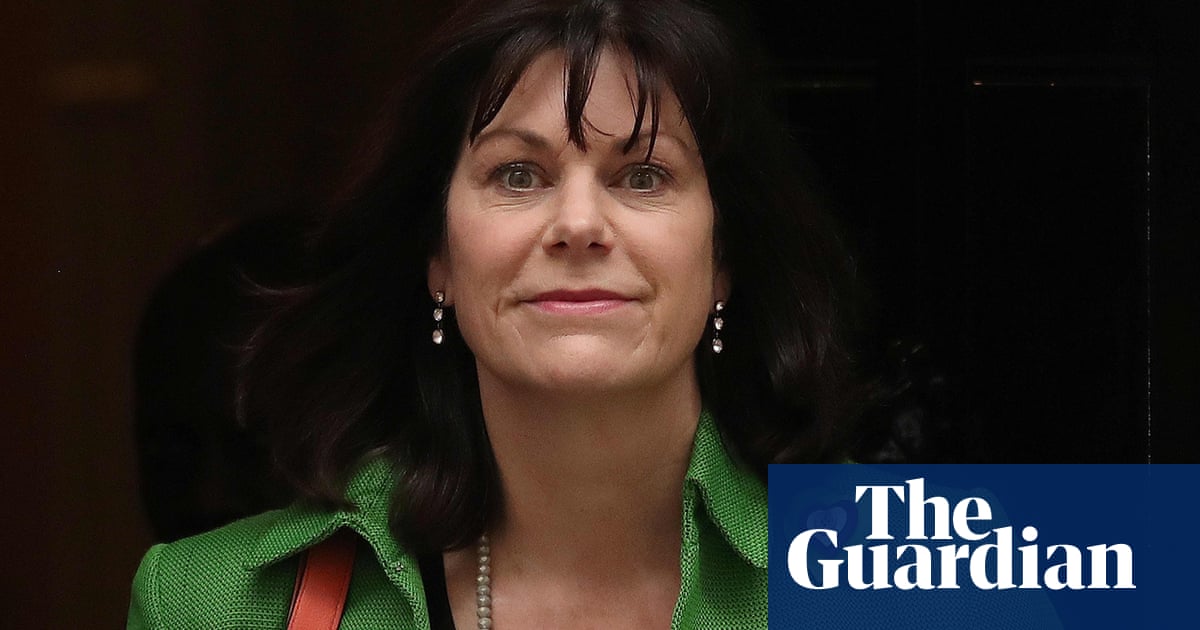
The UK government’s decision to weaken some of its climate commitments was a “retrograde step” that would set back vital cross-party action to cut carbon emissions, Claire O’Neill, a former Conservative climate minister, has said.
O’Neill, who was known as Claire Perry when she served as a minister under David Cameron and Theresa May, said the rolling back of emission reduction efforts by Rishi Sunak appeared to be a ploy for political advantage.
Speaking during a business visit to Sydney, she said the changes “are being made for political reasons to try and create political division and dividing lines”. She added: “If I did anything right in my time, it was to build cross-party consensus.”
She said she had considered it vital to maintain such consensus. “This had to outlast political cycles. And that’s what I find [the U-turn] a bit of a retrograde step.”
Last September Sunak delayed the ban on sales of petrol and diesel vehicles in the UK from 2030 to 2035, a move criticised this week by the outgoing chief executive of the Climate Change Committee, Chris Stark. Stark told the BBC the rest of the world now viewed the UK as “less ambitious on climate”.
Some senior Tories, led by Boris Johnson, criticised the move last year, with the former prime minister telling his successor that he “cannot afford to falter now” because heaping uncertainty on businesses could drive up prices for British families.
O’Neill said she was now “politically unaligned” after resigning her Conservative party membership a few years ago. It was vital to maintain “grown-up collaboration” to ensure the economy maintained a path to net zero emissions while grabbing the economic opportunities that arose as the world decarbonised, she added.
“Does anybody really think the price of carbon is going down? Do we think that the atmosphere is going to become more stable?” O’Neill said. “At some point, you have to take some risks and stick your neck out a bit and be courageous.”
O’Neill also commented on the delay in filling the vacancy of chair of the Climate Change Committee, left open since Lord Deben stepped down last year.
“I would hate to think it’s being done because it’s being offered up as a job to somebody retiring from politics,” she said. “But I can’t help but think, given the quality of the candidates they’ve got, that this is taking way too long.”
O’Neill holds several business titles including being a non-executive director of the Singapore stock exchange. On Tuesday, she took part in another of her roles as a global advisory board member to a hydrogen startup, Hysata.
Based in Wollongong to Sydney’s south, Hysata claims to be able to produce hydrogen with electrolysers that boost a world-leading energy efficiency.
Using earth-abundant materials, the company said its devices could split water into hydrogen and water with a 95% system efficiency (usually 41.5 kWh/kg), compared with about 75% for incumbents (or 52.5 kWh/kg).
“There’s going to be massive opportunities for hydrogen goods and services,” O’Neill said.
The Danish wind turbine company Vestas is among Hysata’s shareholders.












